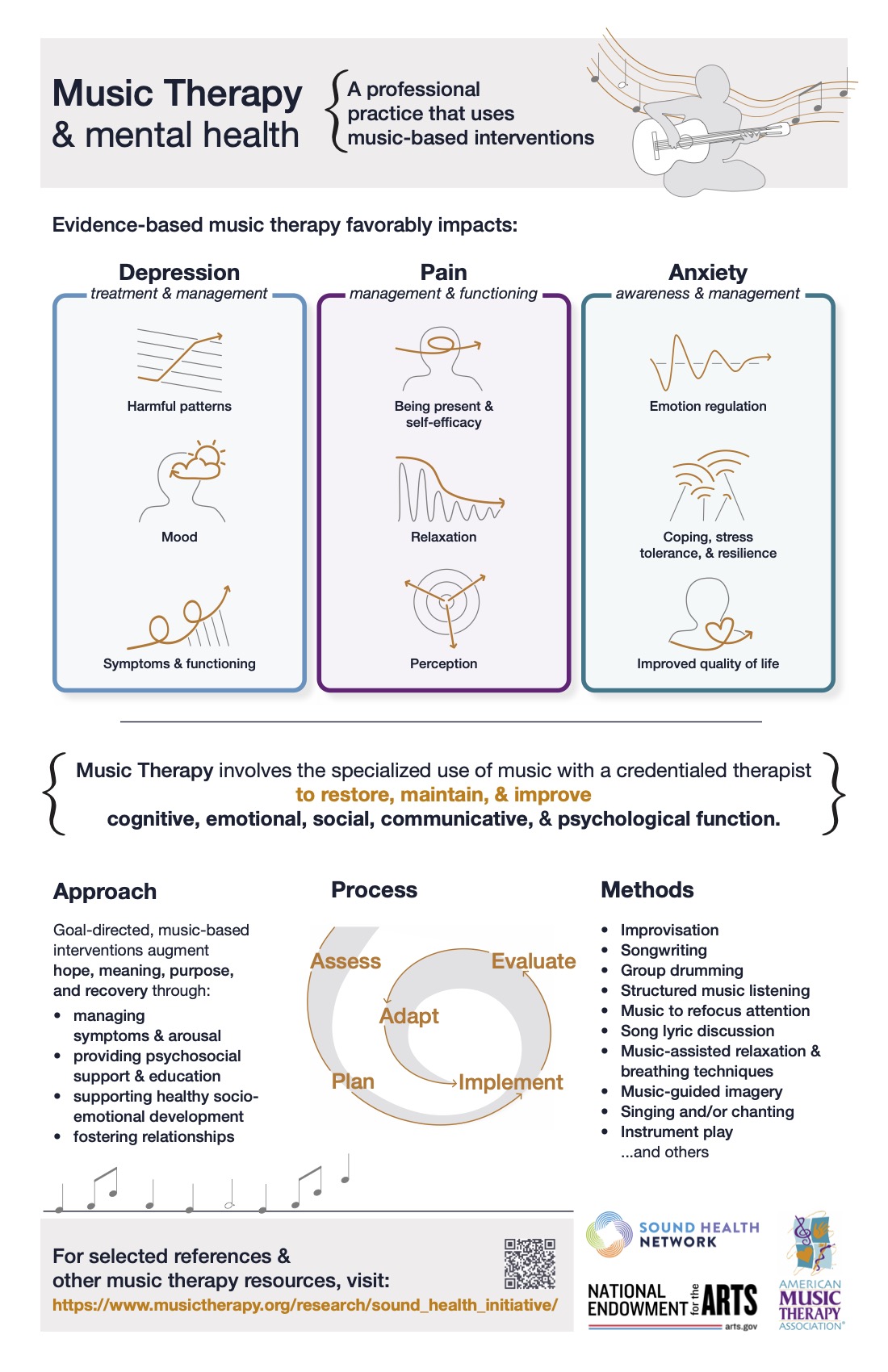Sound Health Network and the American Music Therapy Association Team up to Create an Infographic Illustrating how Music Therapy can Benefit Mental Health
Stories abound about how music has healing properties, and how many people turned to music in the darkest hours of the pandemic. But what is the evidence that music can impact our mental health?
The Sound Health Network and the American Music Therapy Association joined forces to create a simple and effective infographic detailing the benefits of music therapy on mental health.
The infographic highlights the mental health conditions for which the evidence of the benefits of music therapy is the strongest: depression, anxiety and physical pain. Music therapy helps with the treatment and management of depression by disrupting harmful patterns, improving mood, and improving function. Music therapy can also help individuals learn to manage their emotions, improving the quality of life for people living with anxiety, by improving coping, resilience, and stress tolerance. For physical pain, it can help a person relax and stay present in the moment, while also increasing a sense of personal control or self-efficacy, allowing individuals to better manage and function despite feeling pain. Information (including links to studies) about how music therapy and music-based interventions can addresses depression (along with anxiety and pain) is on the AMTA website.
The second page of the infographic provides information about music therapy itself: its definition, approach, process and methods. The infographic can be split into two sections for dissemination and/or printed in a front/back format for in person.


